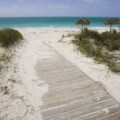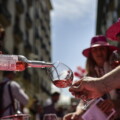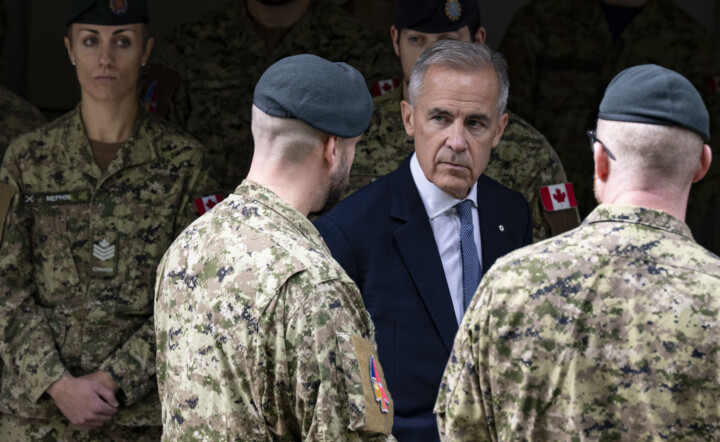For a lucky few—and thanks to my husband’s well-padded Airmiles account, I count myself amongst them—, any transatlantic air voyage includes the privilege of stretching into a sleeping pod. This setting is where we begin our vacation to Croatia, and damn it, it will be luxurious and pampering, even if we are crossing six time zones during a pandemic. Case in point: I splurged for silk face masks, lest my skin is shredded to paper wearing those scratchy medical masks by the time we land in Dubrovnik.
I have made a science of getting enough shut-eye and walking off planes with fresh, dewy skin. The former involves an imperfectly calibrated bite of half of an Imovane tablet. The latter involves a thorough face cleaning and multiple layers of thick sleep masks, and as any dermatologist tell you: hydrate, hydrate, hydrate. So I do, and gulp six liters of water in as many hours. What I hadn’t fully thought out here is that the first leg of our journey is a mere six hours and twenty minutes from Montreal to Frankfurt, and considering that dinner is completed at 10 PM, that left us exactly two and a half hours of possible sleep time before landing. Not exactly the beauty sleep I was hoping for.
No matter, I forged ahead and took a nip of that bitter zopiclone compound. Deep sleep eluded me and in the twilight between consciousness and dream, I felt the plane dropping into a deep nosedive and completing a sharp turn. Those acrobatics immediately brought back memories of that summer dropping acid at the amusement park (it was ‘94 and us grunges had just lost Kurt Cobain—we needed a way to cope). Merely two hours after nodding off, we were taxiing into FRA, and I breathed a sigh of relief.
A short layover and an even shorter flight later, we landed in Dubrovnik. The view from the porthole flying over the Adriatic is striking; dark blue water surrounding tiny islets and white sails from the ships, toy-like in size at this height.
We set about discovering the Dalmatian region and began our adventure at the Sun Gardens Dubrovnik, a sprawling resort part of The Leading Hotels of the World, a prestigious collection of independent luxury hotels. I did mention we were going for luxurious with this vacation, yes? Hearts rejoice, luxurious in Croatia is accessible to far more income brackets than Capri or Mykonos has been over the past two decades. I’m offering this vacation to my husband for his fiftieth anniversary, and I’m thrilled to be able to spoil him with luxurious accommodations. The resort borders the Adriatic Sea, and we spend three days delighting in the clearest water we’ve ever swam in. The crystal-clear water is owed to the rocks forming the seabed and the complete absence of sand, which is responsible for muddying the water.
In fact, “rocky” defines the Dalmatian Coast; limestone to be exact. The ubiquitous limestone bedrock on which Croatia has been established forms an imposing and unforgiving landscape. As I gaze all around me, I cannot help but shiver at the thought of being lost in the Dinaric Mountains. The mountain ridges running parallel to the sea seem to serve the purpose of reminding humans that nature is the supreme leader and we are at its mercy. The sun is unescapable in this landscape, no trees can grow in this arid ground and the result is one of absolute contrast: water and limestone, each helping to form the other. Indeed, limestone easily dissolves in rain and water, forming cavities and caves, streams and springs. This topology defines Croatia and is known as karst.
While the mountains scream “inhospitable”, the Croatians demonstrate warmth and hospitability that I’ve not seen in any of my European travels. From the taxi drivers to the restaurant servers to the hotel staff, we’ve heard their wish to be “good and welcoming hosts” countless times. Their desire to offer tourists a positive experience is touching and truly seems genuine. This optimism pervades all our interactions. I’ve attempted to engage in conversations with our taxi drivers around the Croatian War on Independence of 1991-1995 and have been rebuked every time. Later on, when we sailed to Hvar for another three days of exploration, I prompt our guide, Marco, during a private cycling vineyards tour with Hvar-Life; “We don’t want to talk about the war. It’s in the past, we’ve moved on, we want to focus on the present and future”, he tells me. His tone and demeanor leave no doubt; he means it. Just as with every other Croat I’ve tried to engage in that conversation, I hear and feel their strong desire to be happy, grateful, and enjoy life for what it is.
I’m not surprised when I conduct my research later and read that Croatia is ranked 23 out of 149 in The World Happiness Report, an annual survey conducted by the U.N.’s Sustainable Development Solutions Network which ranks global happiness in countries around the world. Much like the sea and rocks, this is another sharp contrast I take in during my visit to Croatia: pure optimism and genuine happiness in a country destroyed by war 30 years ago. “As long as there is heart, there will be Croatia”; this phrase by Antun Gustav Matoš, the early 20th-century Croatian poet, perfectly captures the spirit of the country.
The 1991-1995 war had devastating effects on the country’s economy, destroying factories, mines, shipyards, farmland, and cattle. Before the war, nearly two-thirds of Croatia’s land was under cultivation and regrettably, much of the country’s arable farmland was damaged during the war. As a result, agriculture now occupies less than one-fourth of Croatia’s land and contributes less than one-tenth of the country’s gross domestic product. In the Dalmatian region, agriculture on a large scale is rare, in part because of the war’s impact, but also due to the high levels of limestone in the soil. Those high levels of calcium carbonates, though, produce some of the most excellent wine we’ve ever tasted. During our cycling wine tour on the island of Hvar, we visit four family-owned vineyards.
The earliest records of viticulture in Croatia were found in the Dalmatian region and the world’s oldest continuously cultivated vineyards can be found at Stari Grad Plain, a UNESCO World Heritage Site, located on Hvar. As we cycle up, up, up, on our—blessedly—electric bikes (it is 34 degree Celsius after all), we take in the historical significance of the site. We dismount to admire the simple beauty of the Stari Grad Plain and Marco explains that it has remained practically intact since it was first colonized by Ionian Greeks from Paros in the 4th century BC. The viticulture and olive culture have been maintained continuously since then, with the same original native grape varietals and olive trees being produced for 2400 years. Each small land parcel is divided by the same short walls made of limestone that were built during the Greek colonization. Our guide explains that the land parcels cannot be altered thanks to its inscription as a UNESCO World Heritage Site, which will undoubtedly contribute to the preservation efforts of the traditional agricultural function and maintain the cultural landscape intact.
During our conversations with our hosts at the vineyards, we learn that winemakers in this region prefer to follow traditional winemaking methods. This, and the limited areas of fertile land, results in a relatively small output of wine from the Hvar region. The exquisite wine made from the indigenous grape is therefore difficult to find in other countries, and all our hosts explain that they made a conscious decision to focus on production for the Croatian market and some carefully chosen restaurants elsewhere in the EU. As we savor our wine along with bread made from local wheat and olive oil made from olive trees that have grown here for thousands of years, we cannot help but feel connected to the essence of the country’s history and its people. We mount our e-bikes again; onto the next vineyard, unequivocally drunk now, from the wine, the sun, the love of the island.
The next day we set sail to the Pakleni Islands on a private sailboat charter. Our captain, Kazo, a young man who seems to have spent his life exposed to the sun and sea, exudes a sense of calm that seems almost supernatural. After sailing for an hour on the clear blue water, we now understand his state of quiet contemplativeness—it’s quite impossible to feel anything but serene, floating away on the tranquil sea. The Pakleni Islands are a chain of rocky islets just off the coast of Hvar and exploring the archipelago could easily be done over a few days.
We have eight hours to soak in the beauty and we intend to enjoy every single second. Lying down on the deck, I close my eyes and let myself drift off in quiet meditation. When I gaze up, I see nothing but blue. Blue sky without a cloud in sight, blue sea as clear as river water. The sun is hot and relentless; it’s time to drop anchor and cool down in the soft waves.
The islands are home to some of the best snorkeling in Croatia and before I even put my snorkeling mask on, I see dozens of fish swimming around me. With my head above the water, my visibility is easily two meters deep, a sight I’ve never experienced in any of my snorkeling trips. No sand or algae to muddy it up; just pure, clean, salty water. Our captain jumps in as well and swims off to an island, a solid 100 meters away, to disappear for a while. When he comes back and we set sail to the next island, I tell him that I envy his life, spent on the water, surrounded by breathtaking beauty. Kazo shrugs and confesses that come October, he books a one-way ticket to northern Europe; Sweden or Danemark, anywhere where it’s dark at 4 PM and the sun is not beating down on him. He doesn’t come back until May, when tourists start landing on Hvar, and he spends the next six months on his boat with nothing but blue sky, blue sea, and white-hot sun. Balance; we all need to find ours, I guess.
Maybe I can find my own by visiting Croatia every summer. I’ll soak in the quiet optimism and stoicism of its people, take in the enchanting sights of the sea and mountains, gorge myself on the seafood and wine, and wave to our captain Kazo when we make our way back to the darkness of winter. As long as there is heart, there will be Croatia—I know part of mine will stay there until my return.
Recommended for You

In defence of wealth and money this Lunar New Year

Wine is but a dream

Forget becoming the 51st state—Canada needs the Turks and Caicos to become its 11th province

From Spain to Chile and beyond—what wines to watch for in 2026



